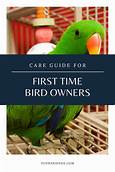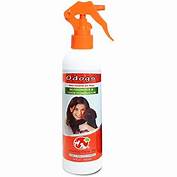How to Care for a Pet Bird
Bringing a pet bird into your home is a rewarding experience, but it also comes with responsibility. These intelligent and social creatures require proper care and attention to thrive. Here are some tips to help you provide the best possible care for your feathered companion:

Housing
1. Cage Size: Choose a spacious cage that allows your bird to spread its wings comfortably and move around without feeling cramped. The cage should also be tall enough to accommodate a variety of toys and perches.
2. Cage Location: Place the cage in a quiet area away from drafts and direct sunlight. Avoid placing the cage in the kitchen, where fumes from cooking can be harmful to birds.
3. Cage Setup: Provide your bird with various perches of different sizes and textures to keep its feet healthy. Include toys, such as swings, ladders, and puzzle feeders, to stimulate its mind and prevent boredom.
Diet
1. Seed Mix: Offer your bird a high-quality seed mix as the foundation of its diet. Choose a mix that contains a variety of seeds, including millet, canary seed, and safflower seeds.
2. Pellets: Supplement the seed mix with a balanced pellet diet. Pellets provide essential vitamins and minerals that may be lacking in seeds.
3. Fresh Fruits and Vegetables: Offer your bird a variety of fresh fruits and vegetables daily. Some favorites include apples, bananas, carrots, and leafy greens.
Water
1. Clean Water: Provide your bird with fresh, clean water daily. Wash the water bowl regularly to prevent bacteria growth.
2. Water Changes: Change the water every day to ensure it stays fresh and free of debris.
3. Water Placement: Place the water bowl in a location where your bird can easily access it.
Grooming
1. Bathing: Some birds enjoy bathing, while others prefer misting. Research your bird's species to determine its bathing preferences.
2. Nail Trimming: Trim your bird's nails as needed to prevent them from becoming too long and sharp.
3. Feather Care: Regularly inspect your bird's feathers for any signs of damage or parasites. If you notice any issues, consult with a veterinarian.
Socialization
1. Interaction: Spend time interacting with your bird daily. Talk to it, offer it treats, and play with it to build a bond.
2. Training: Training your bird to perform tricks or respond to commands can be a fun and rewarding experience for both of you.
3. Bird-Friendly Environment: Create a bird-friendly environment by playing music or nature sounds and providing safe spaces for your bird to explore.
Caring for a pet bird is a commitment, but it can also be a highly rewarding experience. With proper care and attention, your feathered friend can live a happy and healthy life for many years to come.
Declaration: All article resources on this website, unless otherwise specified or labeled, are collected from online resources. If the content on this website infringes on the legitimate rights and interests of the original author, you can contact this website to delete it.




